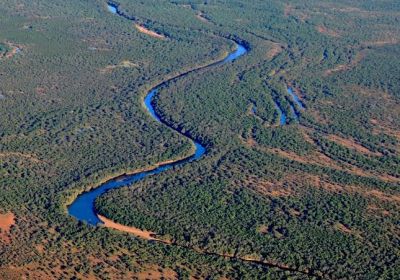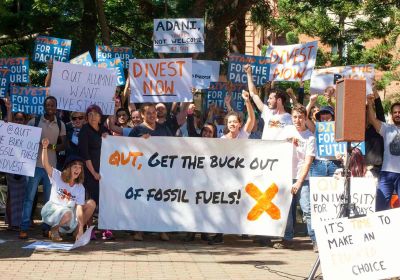-
-
-
 Over the past six years, a strong grassroots campaign has been waged to build a solar thermal power plant in Port Augusta, South Australia. The campaign has brought together diverse stakeholders including local community members, workers, environment groups, unions and the local council. Together they have pushed for coal, the town's traditional energy source, to be replaced with solar thermal technology, which would provide baseload power for the state.
Over the past six years, a strong grassroots campaign has been waged to build a solar thermal power plant in Port Augusta, South Australia. The campaign has brought together diverse stakeholders including local community members, workers, environment groups, unions and the local council. Together they have pushed for coal, the town's traditional energy source, to be replaced with solar thermal technology, which would provide baseload power for the state. -
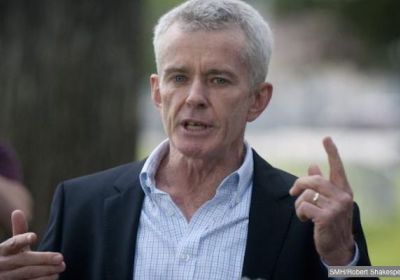 Some would have seen One Nation Senator-elect Malcolm Roberts' performance on ABC's Q&A on August 15. He went hammer and tong repeating ad nauseum that academics are doctoring the science, that the major science bodies are corrupt and that the science on climate change is anything but settled. Here is one small excerpt from his exchange with British physicist Brian Cox: Roberts: “I'm saying ... two things. First of all, that the [climate] data has been corrupted and we know that the 1930s were warmer than today.”
Some would have seen One Nation Senator-elect Malcolm Roberts' performance on ABC's Q&A on August 15. He went hammer and tong repeating ad nauseum that academics are doctoring the science, that the major science bodies are corrupt and that the science on climate change is anything but settled. Here is one small excerpt from his exchange with British physicist Brian Cox: Roberts: “I'm saying ... two things. First of all, that the [climate] data has been corrupted and we know that the 1930s were warmer than today.” -
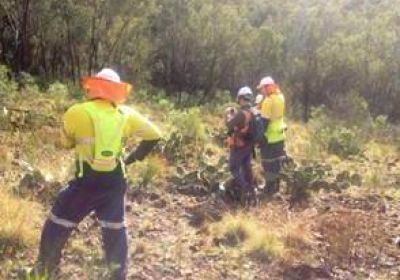 Korean state-owned miner KEPCO and its contractor Worley Parsons were prosecuted by the NSW Department of Industry's Division of Resources and Energy (DRE) in March, after it was revealed the companies had used fake photographs purporting to be of a Bylong property at which they were seeking permission to drill for coal. The photographs were not of the property, and showed an environment completely unlike the area they were seeking permission to drill in. When DRE was alerted to this by the affected landholder, charges were laid against the companies.
Korean state-owned miner KEPCO and its contractor Worley Parsons were prosecuted by the NSW Department of Industry's Division of Resources and Energy (DRE) in March, after it was revealed the companies had used fake photographs purporting to be of a Bylong property at which they were seeking permission to drill for coal. The photographs were not of the property, and showed an environment completely unlike the area they were seeking permission to drill in. When DRE was alerted to this by the affected landholder, charges were laid against the companies. -
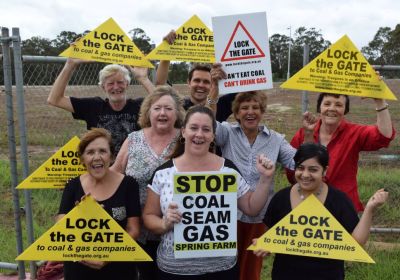
As AGL announced a $400 million loss on August 10, anti-gas protesters assembled outside its headquarters to demand it close its Camden coal seam gas (CSG) project in south-west Sydney.
-
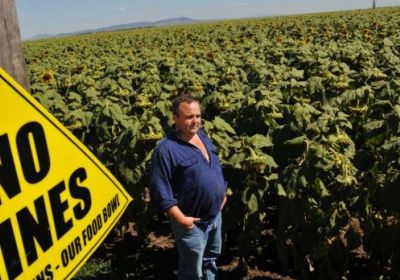 Liverpool Plains' farmers are celebrating the New South Wales state government's decision, on August 11, to buy back BHP Billiton's Caroona coalmine licence for $220 million. This comes after a struggle that began in 2008, when farmer Tim Duddy and the local community began a blockade that put a spanner in BHP Billiton's efforts to start drilling operations on his family's Rossmar Park property.
Liverpool Plains' farmers are celebrating the New South Wales state government's decision, on August 11, to buy back BHP Billiton's Caroona coalmine licence for $220 million. This comes after a struggle that began in 2008, when farmer Tim Duddy and the local community began a blockade that put a spanner in BHP Billiton's efforts to start drilling operations on his family's Rossmar Park property. -
 About 400 people attended a public open-day at the iconic Tarwyn Park property in the beautiful Bylong Valley in the Upper Hunter on July 31. It was the day that Peter Andrews, the 76- year-old founder and expert in Natural Sequence Farming (NSF), relinquished ownership of the property. Korean state-owned mining company KEPCO assumed ownership of the property at midnight on August 1. But Andrews has vowed to stay on to fight for the land's protection.
About 400 people attended a public open-day at the iconic Tarwyn Park property in the beautiful Bylong Valley in the Upper Hunter on July 31. It was the day that Peter Andrews, the 76- year-old founder and expert in Natural Sequence Farming (NSF), relinquished ownership of the property. Korean state-owned mining company KEPCO assumed ownership of the property at midnight on August 1. But Andrews has vowed to stay on to fight for the land's protection. -
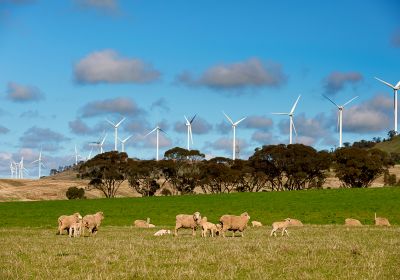 Hysterical anti-renewable headlines aren't necessarily a surprise from the Australian and other News Ltd publications. But the cynicism of the attack on South Australia's renewable energy industry in their pages is still astonishing. On July 25, the Australian published Matthew Warren of the Australian Energy Council — a peak body for “major electricity and downstream natural gas businesses” — blaming renewables for “higher costs and increased risks around reliability” in South Australia.
Hysterical anti-renewable headlines aren't necessarily a surprise from the Australian and other News Ltd publications. But the cynicism of the attack on South Australia's renewable energy industry in their pages is still astonishing. On July 25, the Australian published Matthew Warren of the Australian Energy Council — a peak body for “major electricity and downstream natural gas businesses” — blaming renewables for “higher costs and increased risks around reliability” in South Australia. -
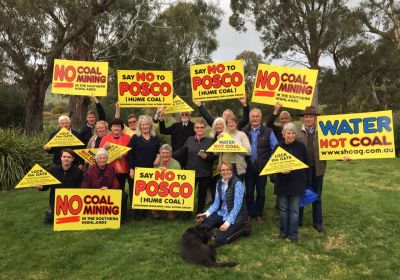
Hume Coal is about to lodge plans for a massive coalmine that, if approved, will be the first large scale coking coal mining operation in the Southern Highlands. The coal will be destined for POSCO's steel mills in South Korea. Hume Coal is fully owned by POSCO.
-
 Two Aboriginal elders were arrested at a protest against multinational mining company Rio Tinto blasting at the Mount Thorley-Warkworth coalmine in the Hunter Valley on July 18. Wonnarua elders Kevin Taggart and his sister Pat Hannson were arrested after telling police they would not move from the side of Putty Road. Residents of the village of Bulga are protesting against the expansion of the Mount Thorley-Warkworth mine, the closure of Wallaby Scrub Road and the destruction of Aboriginal and European cultural heritage.
Two Aboriginal elders were arrested at a protest against multinational mining company Rio Tinto blasting at the Mount Thorley-Warkworth coalmine in the Hunter Valley on July 18. Wonnarua elders Kevin Taggart and his sister Pat Hannson were arrested after telling police they would not move from the side of Putty Road. Residents of the village of Bulga are protesting against the expansion of the Mount Thorley-Warkworth mine, the closure of Wallaby Scrub Road and the destruction of Aboriginal and European cultural heritage. -
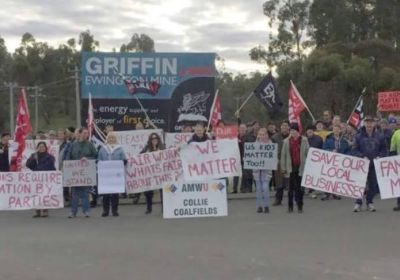 Maintenance workers at Griffin Coal and their supporters held a protest outside the Fair Work Commission (FWC) in Perth's CBD on July 5. They called for a stay on the commission's decision to terminate the recent enterprise bargaining agreement between the Australian Manufacturing Workers Union (AMWU) and the company, citing the latter's alleged unprofitability. Griffin Coal claims to be surviving only due to financial support from its parent company, Lanco Infratech. The 70 workers, who work at Collie in WA's south-west, face a 43% pay cut if the FWC's decision were to stand.
Maintenance workers at Griffin Coal and their supporters held a protest outside the Fair Work Commission (FWC) in Perth's CBD on July 5. They called for a stay on the commission's decision to terminate the recent enterprise bargaining agreement between the Australian Manufacturing Workers Union (AMWU) and the company, citing the latter's alleged unprofitability. Griffin Coal claims to be surviving only due to financial support from its parent company, Lanco Infratech. The 70 workers, who work at Collie in WA's south-west, face a 43% pay cut if the FWC's decision were to stand.
Coal
Coal
